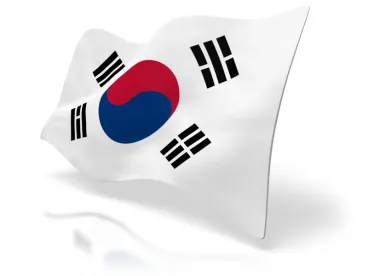Despite increased tension and growing hostility in the region, an agreement has been reached in respect of North Korea’s participation in the Winter Olympics in PyeongChang, South Korea.
On 9 January, the two countries met in their first high-level meeting in over two years to discuss North Korea’s participation in the Winter Olympics. South Korea made the offer after Kim Jong Un, the North Korean leader, proposed immediate talks over North Korea’s inclusion in the games during his New Year speech. The meeting was productive and led to a number of proposals:
-
North Korea proposed dispatching a high-level delegation, National Olympic Committee delegation, athletes, supporters, art performers, observers, a taekwondo demonstration team and journalists to the games;
-
South Korea proposed that the competing athletes from both sides march together during the opening ceremony, reminiscent of what happened in the 2006 Winter Olympics;
-
The South also proposed for the reunion of family members separated during the Korean War whilst the games take place; and
-
The South will consider relieving North Korea of relevant sanctions in order to ensure the North’s participation in the games.
The head of the North Korean delegation, Ri Son-gwon, believed the meeting would provide a “good gift” and that the North entered into discussions with a “serious and sincere stance”. Meanwhile, South Korea’s vice unification minister Chun Hae-sung stated: “starting is half the trip, but we can’t expect to be full with just the first spoonful”, hoping for more productive meetings.
In response, Thomas Bach, the International Olympic Committee president, said“this is a great step forward in the Olympic spirit and in the spirit of the Olympic Truce Resolution passed by the General Assembly of the United Nations. Now the IOC must take the decisions to make this political commitment a reality”.
A second meeting was convened on Monday 15 January in which both sides discussed plans to host a North Korean entertainment troupe and whether to field a joint women’s ice hockey team. It is reported that a North Korean orchestra of 120 members will perform during the Olympics next month. The sides met again at the ‘truce village’ in Panmumjom on Wednesday 17 January to continue finalising the proposals, which has led to both sides now agreeing to march under the Korean Unification flag and fielding a joint women’s ice hockey team.
The IOC met with delegates from both sides as well as the PyeongChang 2018 Organising Committee in Lausanne on 20 January 2018 to consider North Korea’s participation in the games where it was agreed that 22 athletes from North Korea would compete across 5 sports including a combined women’s ice hockey team, figure skating, speed skating, cross county and alpine skiing.
The progress and the willingness of both sides to cooperate in respect of this issue is significant amid rising tensions in the Peninsula. However, the delicacy of the relationship and the situation is clear – a possible area for disagreement has already become known. Following discussion that both sides may march together in the opening ceremony, there could be an issue as to how the athletes will be dressed. Previously, the athletes have worn the same uniforms but South Korea has already produced and paid for its uniforms, which feature the South Korean flag. It is unclear whether North Korea will wear a similar, but modified, uniform or if this will present an obstacle during negotiations.
HISTORY
North Korea has a rich history in the Olympics. The country has won 56 medals in total, 54 in the Summer Olympics and two in the Winter Olympics. North Korea competed in its first Olympic Games in 1964 at the Winter Olympics in Innsbruck, Austria, but the country did not compete in the last Winter Olympics in Sochi, Russia, after none of its athletes were successful in qualification. Whilst its attendance at the Winter Olympic Games has been sporadic, North Korea has attended every summer Olympics since 1972 aside from two Games held in Seoul and Los Angeles, respectively, of which the country boycotted.
The countries have facilitated some sort of cooperation and collaboration before. Athletes from both countries marched together in the opening ceremonies of the 2000 Winter Olympics, 2002 Asian Games, 2004 Summer Olympics, 2006 Winter Olympics and the 2006 Asian Games. In these instances, the athletes marched beneath the Korean Unification Flag, which was designed to represent all of Korea in circumstances where the North and South participate as one team in sporting events. The flag was first used in 1991 when the countries competed as single teams in the World Table Tennis Championships and World Youth Football Championships.
However, this level of cooperation has been somewhat lacking in more recent years. The countries marched separately at the 2010 Winter Olympics in Vancouver, 2012 Summer Olympics in London and 2016 Summer Olympics in Rio de Janeiro. Despite marching separately, South Korean gymnast Lee Eun-ju took a selfie with North Korean’s Hong Un Jong, a fellow gymnast, at the Rio Olympics, which received international attention and praise. IOC president Thomas Bach called it a “great gesture”.
This – and the most recent talks between North Korea and South Korea, two countries who are technically still at war – demonstrates the power and influence that sport can harness to bring about a greater good. It would be the first time in post-war Olympic history that a country has hosted a team from a nation with which it is officially at war with.



 />i
/>i

